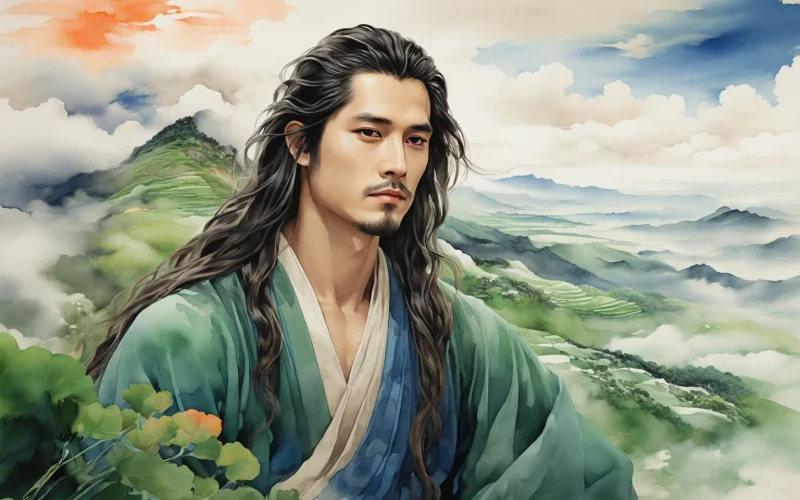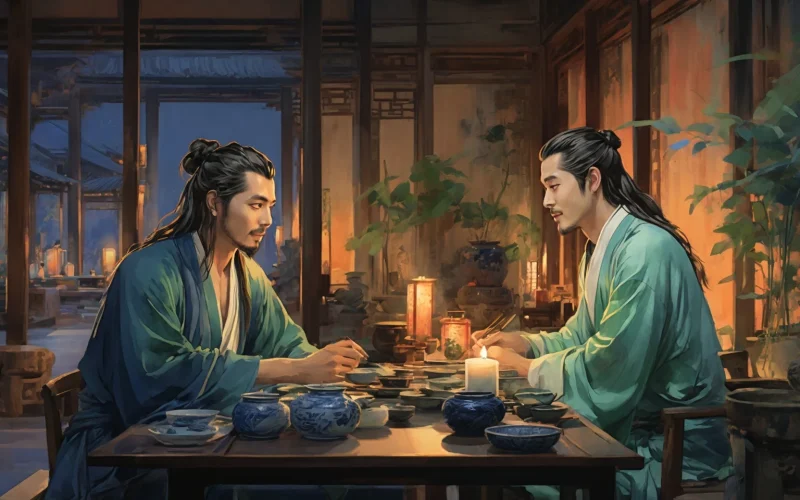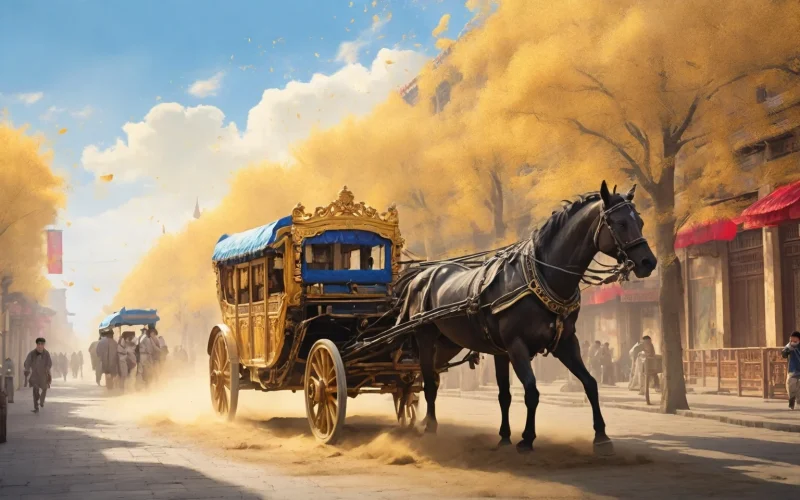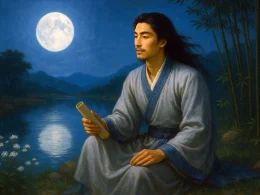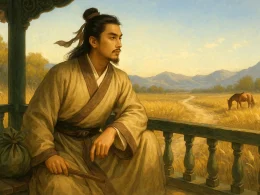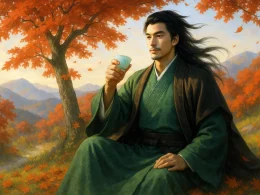Xu Hun (许浑), circa 791–858 CE, was a Tang Dynasty poet hailing from Danyang, Jiangsu Province. One of the most influential poets of the late Tang period, Xu was renowned for his poems on historical reflection and rural life, often featuring imagery of water and rain.
许浑
xǔ hún
Major Works
Life and Career
Xu Hun, styled Yonghui (用晦) and later known as Zhonghui (仲晦), lived during the late Tang Dynasty. While details about his early life are sparse, his works and thoughts provide glimpses into his background.
- Early Life
Born into a modest family, Xu displayed exceptional literary talent early on. He traveled extensively, engaging with scholars and poets, and honing his craft. - Civil Service Career
Xu entered official service through the imperial examination system. However, his career was fraught with challenges, and he never attained high rank. Instead, he became prominent in literary circles, earning acclaim for his poetic skill. - Later Years
In his later years, Xu faced hardships and a stagnant career. Nevertheless, his poetry matured, reflecting a deeper understanding of life and artistry.
Representative Works
Xu Hun’s oeuvre includes many notable poems on nature, history, and personal reflection. Key works include “Xianyang City East Tower” (咸阳城东楼), “To Dufu” (寄杜甫), “Farewell” (送人), and “Two Poems Written on a Chilly Autumn Morning” (秋夜将晓出篱门迎凉有感二首).
- “Xianyang City East Tower” portrays the poet’s poignant reflections on the former grandeur of the Tang Dynasty through vivid imagery.
- “Farewell” expresses deep emotions about the transience of life and the enduring value of friendship.
- “Two Poems Written on a Chilly Autumn Morning” captures the poet’s meditative thoughts on fate and solitude through serene autumnal imagery.
Literary Style
Xu Hun’s poetry is characterized by the following features:
- Elegance and Subtlety
His language is concise and natural, with a focus on expressing profound emotions through depictions of nature. - Themes of History and Reflection
His works often meditate on historical ruins and past events, exploring themes of change and impermanence. - Social Awareness
Although not as renowned as Du Fu, Xu’s poetry reflects concern for societal injustice and the plight of ordinary people.
Literary Achievements
Xu Hun occupies a distinct place in Tang Dynasty literature:
- Contributions to Late Tang Poetry
Blending traditional forms with personal innovation, he enriched themes of rural life and historical reflection. - Advancement of Pastoral Themes
His detailed depictions of nature celebrated its beauty and poignancy, influencing subsequent poets. - Exploration of Historical Transience
Xu’s reflective themes resonated deeply with the uncertainties of the late Tang period, making his works enduringly relevant.
Xu Hun remains a distinguished figure in late Tang poetry. His evocative imagery, historical insights, and reflections on human existence offer a unique perspective on the era's cultural and poetic traditions. Despite his modest official career, Xu’s literary legacy endures as a testament to his creativity and depth.






